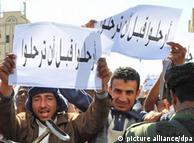STEPHEN J. HADLEY
National security adviser in the George W. Bush administration
Once the situation in Egypt got to a crisis point, America's options were limited. It did not have to be this way. Our government - and particularly then-President George W. Bush - urged the Egyptian government to encourage the growth of civil society and of non-Islamist political parties. Sadly, instead of fostering them, it oppressed them. The underground Islamist Muslim Brotherhood thus became the only alternative to the government party.
If Egypt descends into chaos, either a takeover by the army or a putsch by the Muslim Brotherhood is the most likely option. Neither will be a triumph of democracy nor give the Egyptian people the freedom they seek and deserve.
If the Egyptian government survives the current violence, even Mubarak may conclude that neither he nor his son can win the presidential elections scheduled to be held later this year. He will face a choice. Will he seek to transfer power to another authoritarian strongman or midwife a transition to democracy? Will he encourage the civil society and non-Islamist political parties that could give the Egyptian people real choices for a democratic future? Let us hope and urge President Mubarak to make this latter choice.
AARON DAVID MILLER
Public policy fellow at the Woodrow Wilson International Center for Scholars; former Arab-Israeli peace negotiator for the State Department
Mr. President,
You smartly steered clear of the ideological freedom agenda of your predecessor. And now, in one of history's crueler ironies, you're confronted with a home-grown freedom agenda in Tunisia and Egypt and maybe elsewhere, with impact over time that may be far greater than the politics of Iraq and Afghanistan.
If you're smart and lucky, you won't make an already complicated situation worse, and you might even do some good. Remember:
You can't control history. The Middle East is littered with the remains of great powers that thought they could impose their will on small tribes. The changes loosed in the Arab world are primarily driven by local factors, and they'll have to play themselves out.
Don't abandon your friends. Egyptian President Hosni Mubarak may be an authoritarian, but since 1981 your predecessors and you have deemed him vital to American interests. Be careful what kind of signals you send until you have a much better sense of who or what will come after him. The worst outcome of Egyptian unrest would be a Mubarak who crushes the opposition and resents the United States because he believes that you wanted him on the next flight to Paris.
This will be a long movie. It's driven by deep-seated divisions in the Arab and Muslim world, first between the haves and have-nots over economic resources and second between those who can participate in governing their societies and those who cannot. You will need a strategy, but don't rush to come up with one; it will probably be wrong. For now, loudly proclaim the importance of American values such as respect for human rights, peaceful demonstrations, rule of law, good governance. But keep your distance until you have a much greater sense of where these changes are headed.
DANIELLE PLETKA
Vice president for foreign and defense policy studies at the American Enterprise Institute
There are three choices on foreign policy at any given time: to lead, to react or to be indifferent. When it comes to the question of human freedom, the Obama administration (and, before it, the Bush administration in its latter years) chose indifference. That is how we now find ourselves on the wrong side of history, watching the people of the Middle East as they stand against American-financed and -supported dictators. We have always had the chance to right our ways and to use our great moral, diplomatic and economic suasion to push for increased openness in the region, but other priorities - and the establishment's love affair with "stability" - have taken precedence.
Proponents of indifference (the proto-statesmen of the Foreign Service and their allies) like to posit a binary sort of choice between armed intervention in favor of democracy and the status quo, but that has never been the choice. Rather, we should be educating people about their rights, teaching consistently about the creation of political parties, working to free political prisoners and building the foundations of freedom. That, and not budgetary support and cash-transfer programs, is the proper role for American aid.
Some say that a freedom agenda only opens the door to Islamists; the truth is that our support for secular dictators does more for Islamists than democracy promotion ever did. We have an opportunity to right our ways and stand with the people of the Middle East - not forgetting Iran - in their quest for basic freedom. But it's going to take more than bland statements and White House hand-wringing. The president himself needs to stand up and unequivocally make clear America's position: in favor of the people over their oppressors. Suspend aid to the Egyptian government. Initiate an immediate review of all programs in the Middle East. Get the word out to our diplomats. Now.
HUSSEIN AGHA and ROBERT MALLEY
Agha is senior associate member of St. Antony's College, Oxford University; Malley is Middle East program director at the International Crisis Group and was special assistant to the president for Arab-Israeli affairs from 1998 to 2001
Decades of U.S. policy in the Middle East are coming back to haunt Washington. The United States backed Arab regimes that supported U.S. objectives irrespective of whether they legitimately represented popular aspirations. It propped up "moderate" rulers whose moderation consisted almost exclusively of cooperating with American policies. The more they aligned themselves with Washington, the more generous America's support and the greater the erosion of their domestic credibility. As a result, the United States now faces a battle it cannot win.
To continue supporting unpopular rulers would further alienate those who are most likely to assume power in the future. Openly siding with the street would strain ties with regimes that might survive the unrest and whose help the United States still needs; signal to America's remaining friends that its support is fickle; precipitate the rise of forces hostile to U.S. interests; and do little to persuade demonstrators who will see in America's midnight conversion hypocrisy and opportunism.
Washington can cut its losses and begin turning the page in its relations with the Arab world. That will have to wait. For now, it means assuming a low profile and resisting the temptation to become part of the story. That hardly is an exciting agenda, but the United States could do far worse than do very little.
MARINA OTTAWAY
Director of the Middle East program at the Carnegie Endowment for International Peace
Washington's reaction to the growing unrest will have almost no impact on what actually happens in the Arab world, which will be determined by domestic factors - the protesters' determination, the governments' response, the willingness of police and army units to use force against demonstrators. Protesters, who view the United States as the historical prop for Arab authoritarian regimes, will not heed Washington's calls to avoid violence. And regimes that have been authoritarian for decades will not suddenly see the wisdom of liberalization because of statements from Washington.
But what the United States says affects its standing in the region. The Obama administration's attempt to strike a balance between not offending incumbent regimes and refurbishing its image by sending a message that Washington wants reforms is failing - messages are circulating on the Internet to the effect that the United States is once again supporting authoritarianism. Washington must get off the fence and choose whether it wants to support democracy, and thus be on the side of Arab publics enraged by decades of repression, or whether it wants to continue supporting regimes that have been repressive for decades in the name of ill-defined strategic interests. It cannot do both. The United States' long-term interests would be best served by supporting unequivocally the messy process of democratic change.
ANDREW ALBERTSON
Executive director of the Project on Middle East Democracy from 2007 to 2010
The Obama administration has begun taking many of the right steps already. Aware of the dangers for U.S. interests posed by governments that resist democratic participation even as their people become more educated, affluent and connected to the outside world, they have repeatedly raised with Arab leaders the need for comprehensive reforms. Secretary of State Hillary Clinton presciently warned regional foreign ministers two weeks ago, "Those who cling to the status quo may be able to hold back the full impact of their countries' problems for a little while, but not forever."
For far too long, the United States has relied on leaders in the Middle East who maintain their rule through coercion. Against the backdrop of appalling violence in Tunisia and Egypt, and the stark moral legitimacy of protests sweeping the region, the bankruptcy of that approach has never been clearer.
In the wake of Friday's events in Egypt, the administration needs to double down on its call for political reforms across the region. In Tunisia and Egypt, the administration should seize the opportunity to support full-scale transitions to democracy. New subsidies or cabinet shuffles aren't enough. What happened on the streets of Cairo was not a bread riot but a legitimacy riot. And forceful crackdowns represent a big roll of the dice - for regimes and for Washington, to the extent that the United States is perceived to be complicit in such violence.
People in the region want to be citizens - protagonists in their national political life, rather than subjects who passively take what the government gives. They want an end to ministries, parties and police forces that operate above the law and foster endemic corruption. The United States should quickly press allies such as Yemen, Jordan and Morocco to drop constraints on political participation, convene broad political dialogues, and place the highest premium on transparent and effective governance. The best guarantee of stability is participation, pluralism and progress.
ED HUSAIN
Senior fellow at the Council on Foreign Relations
Arabs regularly accuse America of flagrant hypocrisy: The United States claims that it stands up for freedom and democracy and yet supports the world's most tyrannical governments in Egypt, Saudi Arabia and elsewhere. The current popular uprising is a chance to set the record straight. Former secretary of state Condoleeza Rice once quipped that America had traded freedom for stability in the region and got neither.
I've lived and traveled across the Arab world and witnessed the vast popularity of American clothes, Hollywood, McDonald's, baseball caps, cars and books. Visa applications overload U.S. embassies. Yet double standards in U.S. foreign policy anger young Arabs and fuel radicalization and terrorism. By proudly supporting the freedom chanters today, America has a once-in-a-generation opportunity to help undermine terrorists and tyrants and support the people. So far, Vice President Biden has blundered by supporting Egypt's dictator. This needs to change.
The Arab world is no longer across the oceans. It is also on our streets here. Millions of American citizens are of Arab descent. Millions more are here as workers and students. What happens over there matters here. Can America make these people proud and empower them against Muslim extremists by changing the American story and making us all safer? Yes, it can. It must.
Source: http://wapo.st/eV7fJT





















